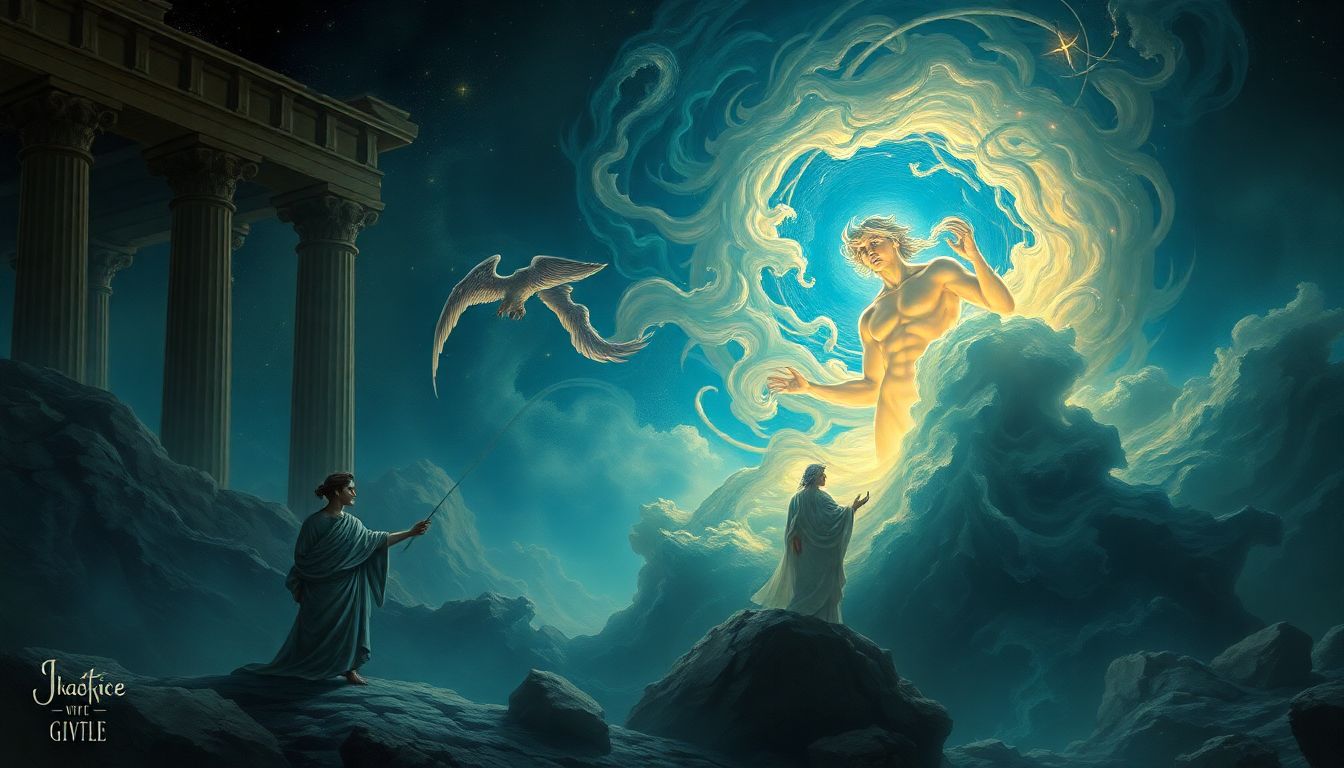Dreams have captivated humanity for millennia, offering glimpses into the subconscious and, according to Ancient Greek beliefs, serving as divine messages. For the Greeks, dreams were not random occurrences but powerful tools for guidance, prophecy, and healing. Let’s dive into their fascinating interpretations and practices surrounding dreams.
Dreams as Divine Messages
In Ancient Greek culture, dreams were seen as direct communications from the gods or spirits. Deities like Zeus, Apollo, and Athena were thought to use dreams to guide mortals, offering warnings or blessings.
- Prophetic Dreams: Greeks believed certain dreams foretold the future. Kings and warriors often relied on these dreams to make critical decisions in battle or politics.
- Healing Dreams: Associated with Asclepius, the god of medicine, dreams were considered a medium through which divine healing could occur.
Dreams were so revered that people visited temples, known as Asclepieions, to seek divine visions for solutions to ailments or challenges.
Symbolism in Greek Dreams
Dream interpretation in Ancient Greece involved decoding rich symbolism. Common symbols included:
- Mountains: Represented challenges or spiritual ascension.
- Animals: Each animal carried a unique meaning. For example, a snake symbolized rebirth or transformation.
- Light: Dreaming of light was often seen as divine favor or enlightenment.
- Death: Symbolized change or transformation rather than an end.
The Greeks believed that understanding these symbols could unlock insights into personal dilemmas and future outcomes.
The Role of Dream Interpretation
Dream analysis was a sophisticated practice in Greek society. The philosopher Aristotle viewed dreams as reflections of the dreamer’s waking life, while Plato believed dreams provided access to higher truths and divine knowledge.
For everyday individuals, dream interpreters, known as Oneirocritai, offered guidance by analyzing the symbolism and context of their dreams. They often referenced ancient dream dictionaries, which cataloged various dream scenarios and their meanings.
Dream Incubation Practices
Dream incubation was a popular method for receiving divine guidance. Here’s how it worked:
- Purification Rituals: Dreamers would cleanse themselves and offer sacrifices to the gods.
- Temple Sleep: They slept in sacred temples dedicated to Asclepius or other deities, hoping to receive a dream with a divine solution.
- Interpretation: Priests or dream interpreters would analyze the dream and provide actionable advice.
This practice reflected the Greek belief in dreams as a vital link between humans and the divine.
Dreams in Literature and Mythology
Dreams were central to many Greek myths and epics. In Homer’s Iliad and Odyssey, dreams served as critical plot devices, often delivering prophetic warnings or divine commands. These stories highlight the cultural significance of dreams as powerful tools for understanding fate and destiny.
Conclusion
The Ancient Greeks’ intricate beliefs about dreams reveal a society deeply connected to the spiritual realm. Whether for healing, prophecy, or guidance, dreams served as a bridge between mortals and the gods.
Curious about your own dreams?
After exploring these ancient interpretations, uncover the meaning of your dream with a free one-card tarot reading to see if it brings positive or negative news.
Click here for your free reading!

👇One Card Tarot Reading👇
If you're interested, you can try a free online one-card tarot reading. This simple yet insightful tarot draw can help you gain a glimpse into whether your upcoming experiences might lean toward the positive or the negative. Ready to discover what the cards hold for you? 🌟
Draw a card nowDreams spark connection and insight. Share!